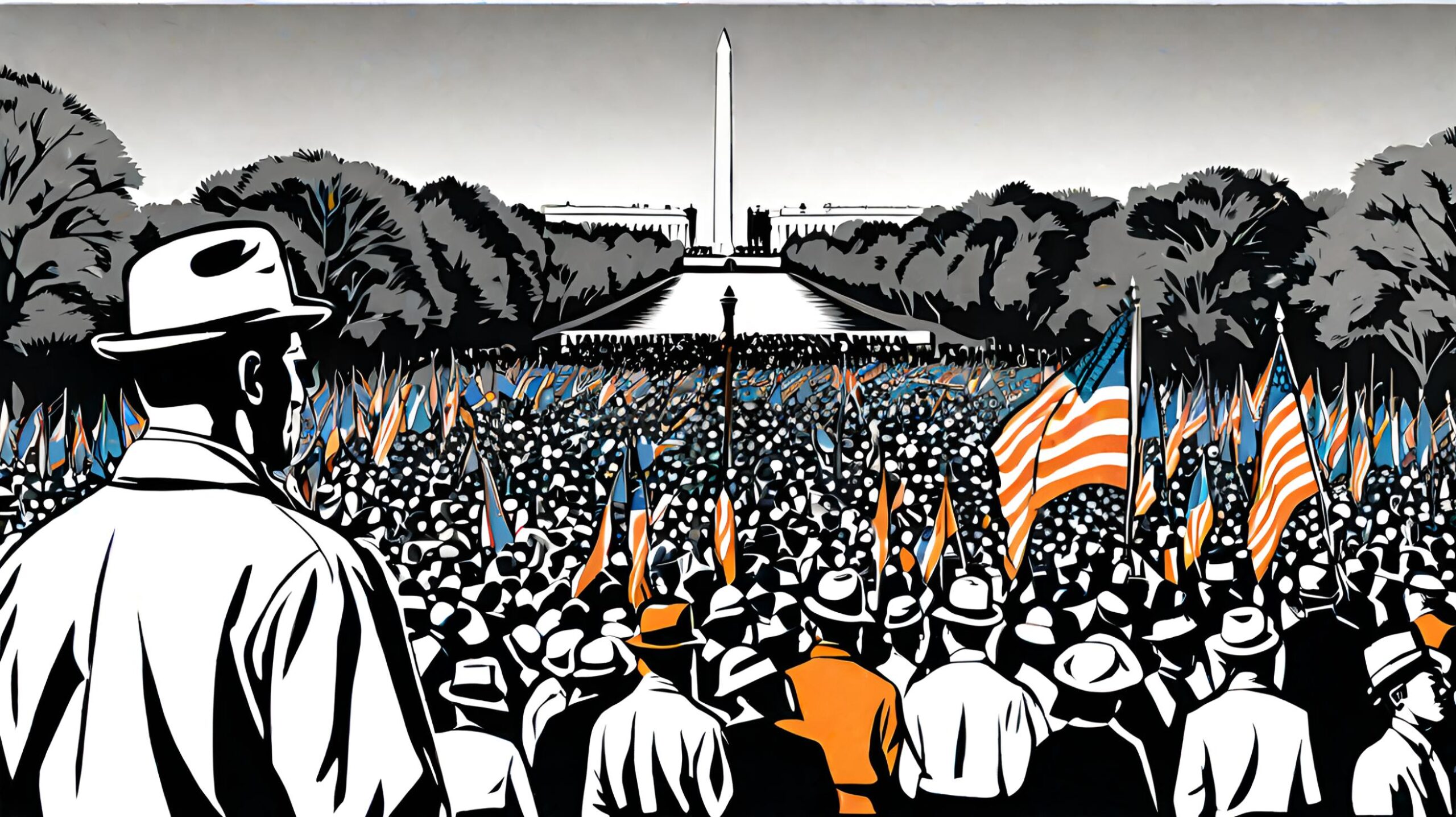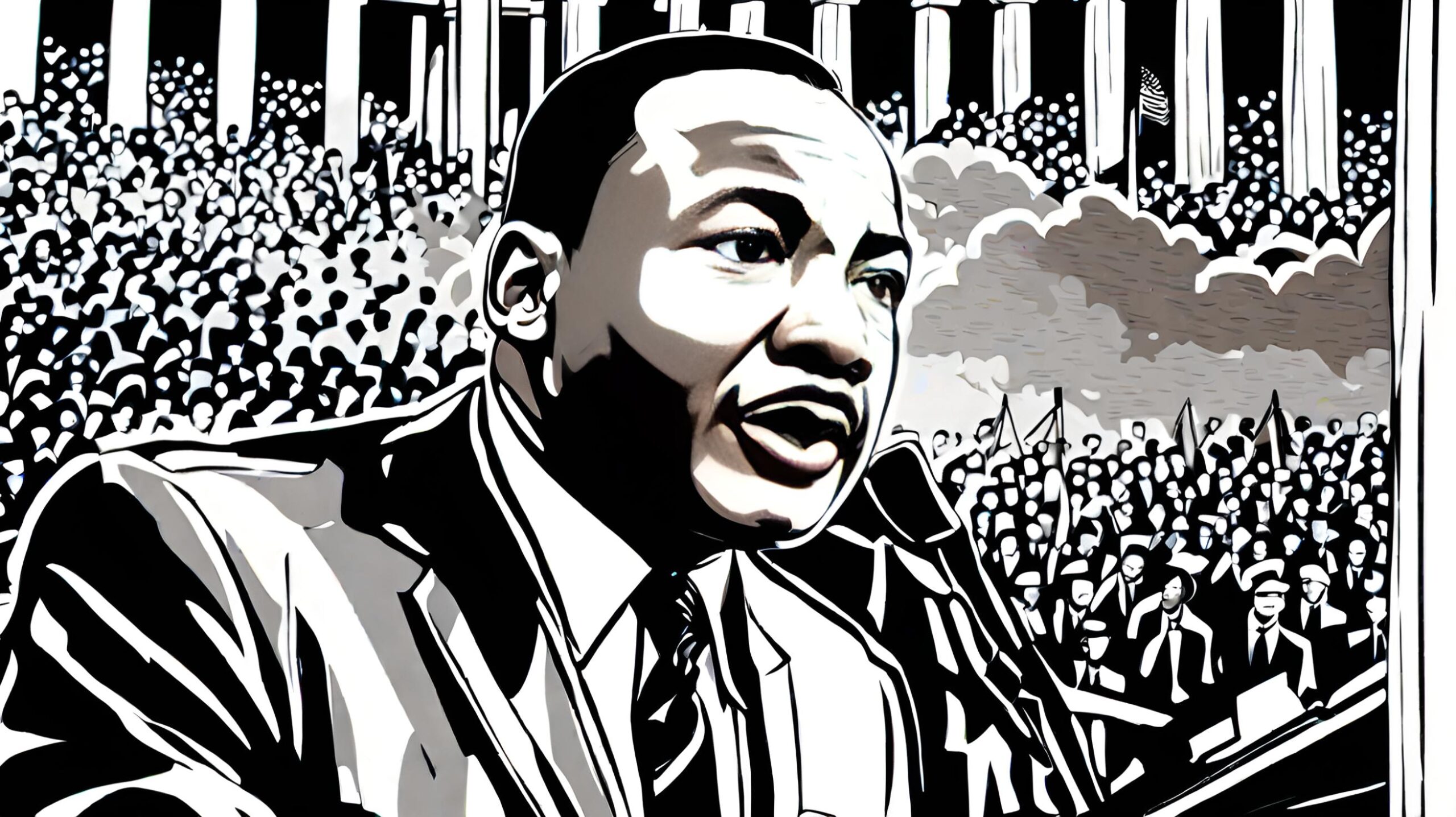Flashback to August 28
American History

The historic event on August 28, 1963, was indeed a watershed moment in the annals of American history, when an astonishing 200,000 people rallied in Washington, D.C., advocating for equal rights for all, irrespective of racial or ethnic disparities. This massive demonstration went down in history for its iconic significance and profound impact on the march towards comprehensive civil rights legislation.
Regarded as one of the largest rallies for human rights in the United States, the congregation of 200,000 demonstrators in the nation’s capital was a testament to the collective will of the American people and their clamor for justice, equality, and equal rights for every citizen. The event was a beacon, shining a light on the inherent dignity of every individual and the need for specially crafted, robust civil rights legislation that would guarantee social and financial equality for all.
The gravity of the event, its historical significance, and the ripples it sent through American society and beyond, make it a benchmark in the long, tumultuous journey towards civil rights for all Americans. It is noteworthy not just because of the sheer number of demonstrators but also due to the overarching message of unity, solidarity, and the collective pursuit of equal rights that the demonstration embodied. The rally was a clarion call for the end of racial discrimination and featured prominent civil rights activists who set the tone for the movement and the eventual legislation that took shape years later.
Historically speaking, the march in Washington was catalyzed by ongoing economic and social inequalities prevalent in society. The magnitude of the demonstration reflected the simmering social discord and served as a pivotal phase in the civil rights movement. Every individual present during the event, every chant heard, and every step taken on the streets of Washington, D.C., lent credence to the longing for a fair society where every citizen has equal rights.
This unprecedented event was characterized by peaceful demonstrations with participants fervently expressing their demands for a just and equitable society. The vision that prevailed among the 200,000 demonstrators was a society that would accord everyone equal opportunities, regardless of their race or ethnicity, a vision that resonates with the American dream of fairness, liberty, and justice for all.
While this monumental march was primarily poised to advocate for the economic and social rights of African-Americans, it transcended racial lines and spoke volumes about the universal human rights that are central to a just society. It was a demonstration for equality on a broader level, calling for equal rights legislation that would protect all marginalized groups, not just those identified by their race or ethnicity.
Among the sea of demonstrators, several noteworthy figures emerged who urged the government to enact civil rights legislation. The event saw speeches from civil rights leaders who brought the underlying issues to the forefront. The climax of the event was, of course, the timeless ‘I Have a Dream’ speech by Dr. Martin Luther King Jr., a moment that reverberated across the country and still resonates today as a reminder of the necessity of equal rights for all.
The 200,000 people that swarmed Washington, D.C., on August 28, 1963, ignited a change in the perception and practice of civil rights in the United States. Through their peaceful demonstration, they underscored the necessity for reforms and paved the way for subsequent legislative changes that upheld equal rights in the nation. The event became a touchstone for civil rights movements, an embodiment of the demand for equity and justice that has continued to guide social justice initiatives ever since.
The demonstration of 200,000 advocates for equal rights in Washington, D.C., on August 28, 1963, was not just an event in American history; it was a phenomenon that symbolized the power of collective voice, the tenacity of a united people, and the undeniable significance of equal rights for all. As such, it remains an indelible mark on the tapestry of American history and a cornerstone for future generations advocating for social justice and equality.
We strive for accuracy. If you see something that doesn't look right, click here to contact us!
Sponsored Content

200,000 demonstrate for equal…
"An historic event took…

Martin Luther King, Jr.…
On August 28, 1963,…

First known photograph of…
"Experience the remarkable tale…

A drunk motorman speeds…
Experiencing one of its…

Riots in Chicago, Illinois,…
Explore the dramatic unfolding…

John Hinckley Jr pleads…
"On August 28, 1981,…

